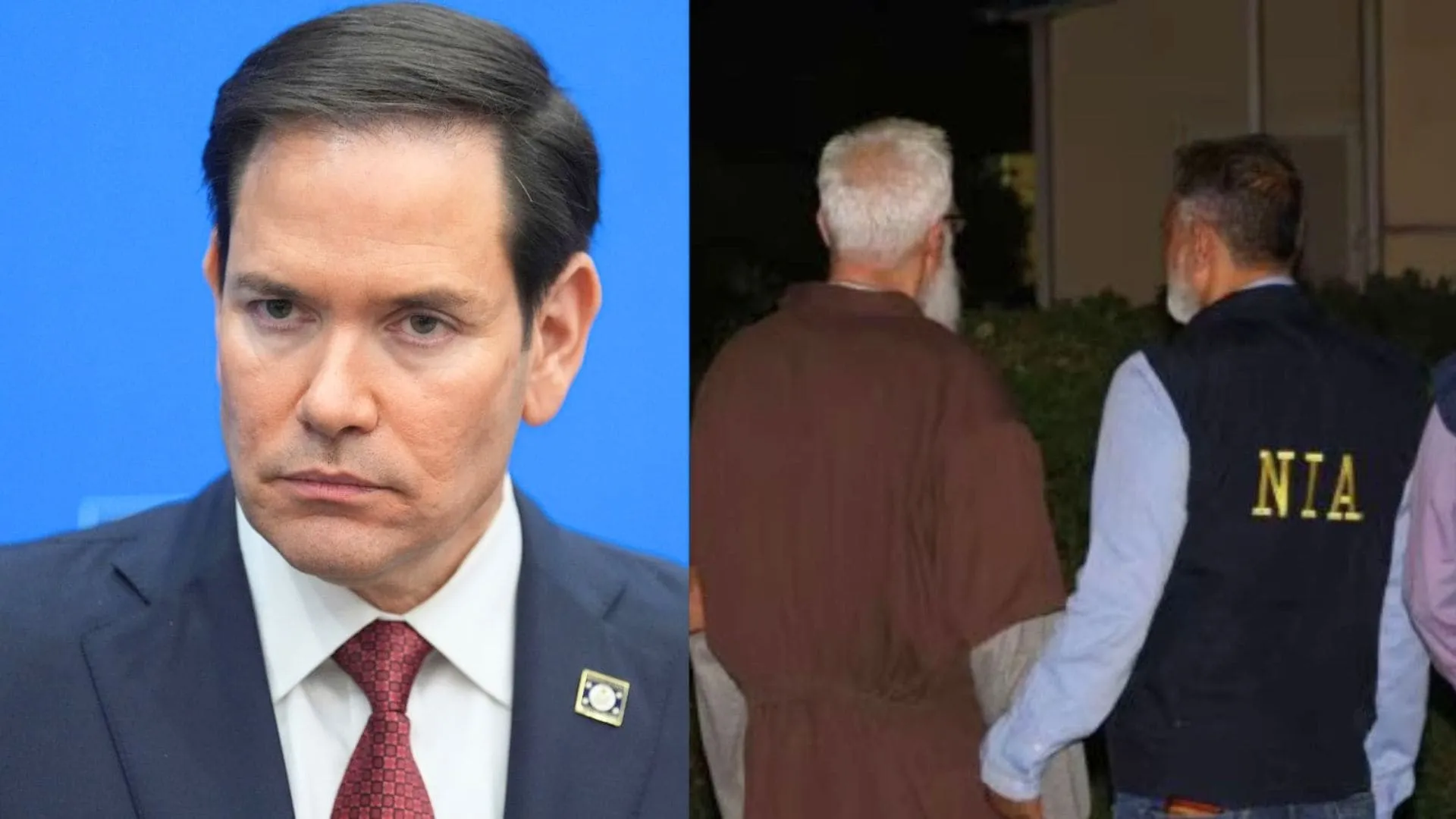Tahawwur Rana, the Canadian businessman of Pakistani origin, is currently in India following his extradition battle of many years with America. He is one of the main accused in the 26/11, 2008 Mumbai terror attack, which claimed the lives of 166 victims, including six Americans.
Even though he was acquitted in America in 2011, India pressured him to return on fresh and separate charges. Following the US Supreme Court rejected his last appeal, Rana arrived in New Delhi under tight security. His extradition not only reopens legal issues but also indicates increasing international cooperation in the war against terrorism.
Rubio’s Reply: Legal Grounds and Political Messaging
Although the lawyer of Tahawwur Rana, John D. Cline, requested a halt in the extradition, Senator Marco Rubio’s office clarified that the process adhered to international standards of law. In a formal letter, Rubio’s office indicated that the decision to extradite was in line with the United Nations Convention Against Torture (CAT).
It clarified that the Secretary of State authorized Rana’s surrender pursuant to 18 USC § 3186 and in accordance with the Extradition Treaty between the United States and India.
We extradited Tahawwur Hussain Rana to India to face charges for his role in planning the horrific 2008 Mumbai terrorist attacks. Together, with India, we’ve long sought justice for the 166 people, including 6 Americans, who lost their lives in these attacks. I’m glad that day…
— Secretary Marco Rubio (@SecRubio) April 11, 2025
Rubio’s staff did not grant Cline’s appeal for a one-on-one meeting. Instead, they reaffirmed Washington’s stance that Rana’s ouster was a respect for human rights commitments and treaty norms.
Rubio’s words express bipartisan US backing for anti-terrorism activities across borders. His words also gave a diplomatic go-ahead to India’s quest for justice, even years after the massacre.
Supreme court greenlighted the move
The US Supreme Court denied Tahawwur Rana’s appeal in early March 2024. The court held that India’s case had aspects which were different from the US charges. Therefore, it did not go against the rule of “double jeopardy.”
The law of the US permits extradition under certain treaty provisions, and here the India-US treaty was applicable. With that, the legal window shut on Rana’s side, and diplomatic wheels rolled swiftly.
Rana in NIA custody for fresh probe
Tahawwur Rana is now under custody at the NIA office in New Delhi. He is being questioned by officials on new leads. His telephone conversations with co-accused David Coleman Headley, who became approver in the US, are now being probed.
Investigators suspect Rana could have played a greater part in organizing Headley’s travels in India. His travels to several Indian cities prior to the 2008 attack are also being re-examined. NIA wants to understand better his role and the broader terror network.
Why this extradition matters ?
Tahawwur Rana extradition is not merely a legal breakthrough. It demonstrates the efficacy of cross-border justice even after years of indecision. For India, this is a victory in the long battle to bring every 26/11 conspirator to book.
For America, it indicates that justice has no borders, particularly in terror cases. Despite jail conditions and trial fairness concerns, Washington proceeded—indicating faith in Indian due process.






















